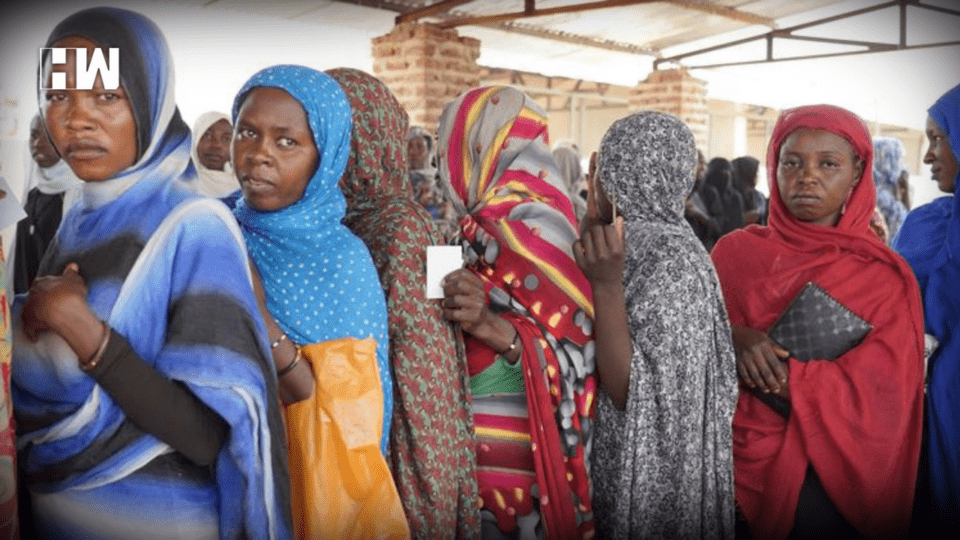Civilians are in increasing danger, while humanitarian needs across Sudan “are growing exponentially”, the head of the UN mission in Sudan told ambassadors in the Security Council on Tuesday.
UNITAMS chief and UN Special Representatives, Volker Perthes, warned that amid “continuing deterioration” on a socio-economic level, the overall situation in Sudan, “will continue to worsen unless a political situation is found to restore a credible, fully functioning civilian-led government”.
He said following last October’s military takeover – which ended the power-sharing administration between civilian leaders and army generals that was formed following the overthrow of long-time ruler, Omar al-Bashir in 2019 – Sudan still lacks “a fully functional and legitimate government.”
What was sorely needed, said Mr. Perthes, was a government “that can re-establish the authority of the State across the country and create the conditions for a resumption of international cooperation, including debt relief.”
But that outcome was “by no means guaranteed”, although there remains “a chance to reach a political agreement that would inaugurate a new transitional period towards democratic governance.”
‘Window of opportunity’
He said in the wake of the military decision “to withdraw from politics and the recent initiatives by civilian forces”, there was now a window of opportunity for both, “to reach an agreement on the way forward.”
“Time is of essence however: the longer political paralysis exists, the more difficult it will become to return to the ‘transition’ which UNITAMS is mandated to assist.
“I urge all actors to seize the opportunity and reach an agreement on a solution that enjoys legitimacy in the eyes of Sudanese women and men.”
He noted that over the past 10 months, there had been recurrent protests against the coup, with 117 killed and “thousands injured”, and ongoing human rights abuses.
He pointed however, to the constant efforts of youth, women, trades unions and professional associations, to continue the push towards civilian rule, and the formation of a new independent journalists’ syndicate, asserting their civil rights.
“At the same time, elements of the former regime which were displaced by the revolution are gradually returning to the political scene, to the administration, and to the public space”, Mr. Perthes added.
‘Promising developments’
He highlighted other “promising developments” politically, including on July 4, President of the Sovereign Council, General Abdelfattah Burhan’s announcement of the move out of the political arena.
“And while large parts of the public doubted that the military leadership meant what it said, the announcement did generate momentum among civilian forces, and four or five major initiatives aimed at reaching a common ‘civilian’ vision have emerged in response.”
Vision of the future
He said just on Saturday, Sudan’s Bar Association presented the outcome of their work on a draft constitutional framework, to the Trilateral Mechanism – which consists of the UN mission, the African Union and regional development body, IGAD.
“The draft was explicitly endorsed by the parties behind two other major initiatives, which means that the Bar Association initiative now gathers a broad spectrum of civilian forces around one vision”.
He said the Trilateral Mechanism has engaged with all available initiatives. “We have facilitated meaningful participation of women; we have provided constitutional expertise to those who have requested such assistance; and we are currently in the process of comparing the constitutional and political visions that have been issued.”
He said “almost all stakeholders, including notably the military, have expressed that they want the Trilateral Mechanism to play a role – either in bringing the different initiatives together, coming up with bridging proposals, or eventually mediating an agreement with the military.”
Opportunities
The UNITAMS chief said he was encouraged by “the degree of commonality” over the political future with a “wide-ranging consensus now, among other things, on the need for a civilian head of state, an independent prime minister, and a cabinet of experts or technocrats, not party leaders. There is also consensus that the issue of transitional justice needs to be high on the list of priorities.”
“So, there is an opportunity to end the crisis, which military and civilian forces need to grasp. And while any political agreement needs to be Sudanese-owned, the Trilateral Mechanism stands ready to convene the parties around one text so as to bridge remaining differences.”
Record level of need
He said humanitarian needs however, were at record levels, due to political instability, economic crisis, rising intercommunal violence, poor harvests, “and now floods.”
Nearly 12 million people are facing acute hunger and this number is growing. While the UN and partner organizations managed to reach 7.1 million people in need since January, the 2022 Humanitarian Response Plan is only funded at 32 per cent, he told ambassadors.
He said the UN has been working with partners to strengthen community stabilization efforts and resilience building.
UNITAMS and the whole UN team on the ground, also continue to offer support to national and state authorities in the implementation of the National Plan for the Protection of Civilians, added Mr. Perthes, and the mission continues to advise and train Sudanese Police Forces in community policing, addressing sexual and gender-based violence, and the protection of civilians.
As an independent media platform, we do not take advertisements from governments and corporate houses. It is you, our readers, who have supported us on our journey to do honest and unbiased journalism. Please contribute, so that we can continue to do the same in future.

